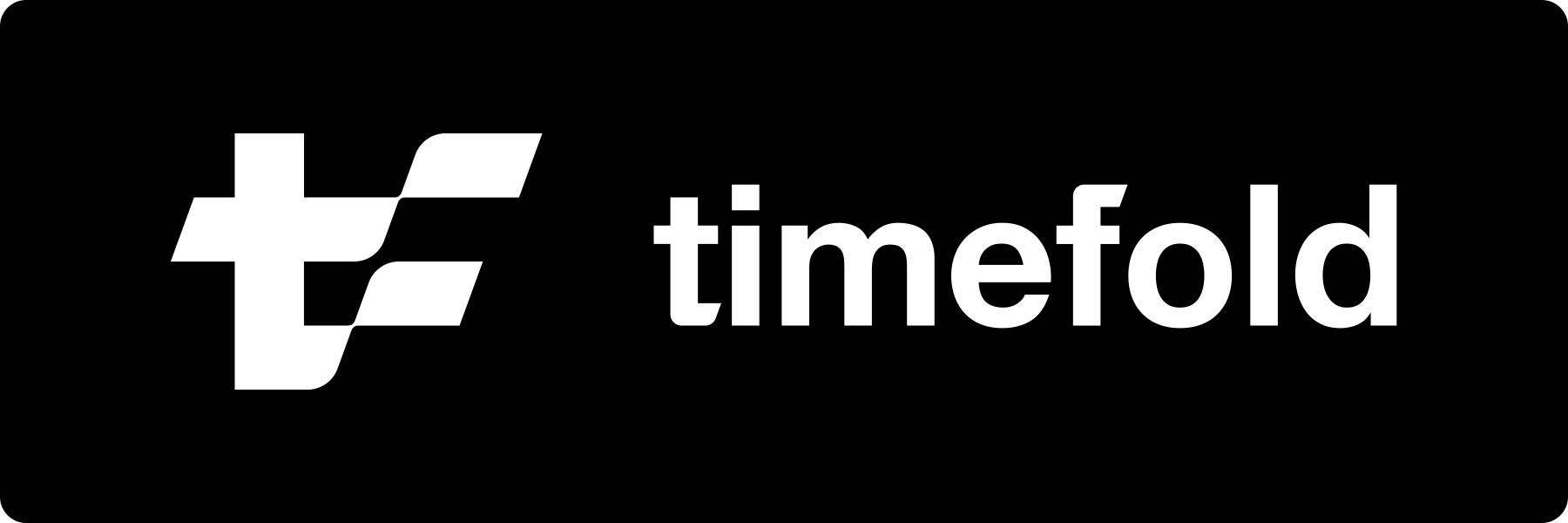Timefold Solver is an AI constraint solver for Python to optimize the Vehicle Routing Problem, Employee Rostering, Maintenance Scheduling, Task Assignment, School Timetabling, Cloud Optimization, Conference Scheduling, Job Shop Scheduling, Bin Packing and many more planning problems.
Using Timefold Solver in Python is significantly slower than using Timefold Solver in Java or Kotlin.
- Install Python 3.10 or later.
- Install JDK 17 or later with the environment variable
JAVA_HOMEconfigured to the JDK installation directory.
In Timefold Solver, the domain has three parts:
- Problem Facts, which do not change.
- Planning Entities, which have one or more planning variables.
- Planning Solution, which define the facts and entities of the problem.
Problem facts can be any Python class, which are used to describe unchanging facts in your problem:
from dataclasses import dataclass
from datetime import time
@dataclass
class Timeslot:
id: int
day_of_week: str
start_time: time
end_time: timeTo declare Planning Entities, use the @planning_entity decorator along with annotations:
from dataclasses import dataclass, field
from typing import Annotated
from timefold.solver.domain import planning_entity, PlanningId, PlanningVariable
@planning_entity
@dataclass
class Lesson:
id: Annotated[int, PlanningId]
subject: str
teacher: str
student_group: str
timeslot: Annotated[Timeslot, PlanningVariable] = field(default=None)
room: Annotated[Room, PlanningVariable] = field(default=None)-
The
PlanningVariableannotation is used to mark what fields the solver is allowed to change. -
The
PlanningIdannotation is used to uniquely identify an entity object of a particular class. The same Planning Id can be used on entities of different classes, but the ids of all entities in the same class must be different.
To declare the Planning Solution, use the @planning_solution decorator:
from dataclasses import dataclass, field
from typing import Annotated
from timefold.solver.domain import (planning_solution, ProblemFactCollectionProperty, ValueRangeProvider,
PlanningEntityCollectionProperty, PlanningScore)
from timefold.solver.score import HardSoftScore
@planning_solution
@dataclass
class TimeTable:
timeslots: Annotated[list[Timeslot], ProblemFactCollectionProperty, ValueRangeProvider]
rooms: Annotated[list[Room], ProblemFactCollectionProperty, ValueRangeProvider]
lessons: Annotated[list[Lesson], PlanningEntityCollectionProperty]
score: Annotated[HardSoftScore, PlanningScore] = field(default=None)-
The
ValueRangeProviderannotation is used to denote a field that contains possible planning values for aPlanningVariable. -
The
ProblemFactCollectionannotation is used to denote a field that contains problem facts. This allows these facts to be queried in your constraints. -
The
PlanningEntityCollectionannotation is used to denote a field that contains planning entities. The planning variables of these entities will be modified during solving. -
The
PlanningScoreannotation is used to denote the field that holds the score of the current solution. The solver will set this field during solving.
You define your constraints by using the ConstraintFactory:
from domain import Lesson
from timefold.solver.score import (Joiners, HardSoftScore, ConstraintFactory,
Constraint, constraint_provider)
@constraint_provider
def define_constraints(constraint_factory: ConstraintFactory) -> list[Constraint]:
return [
# Hard constraints
room_conflict(constraint_factory),
# Other constraints here...
]
def room_conflict(constraint_factory: ConstraintFactory) -> Constraint:
# A room can accommodate at most one lesson at the same time.
return (
constraint_factory.for_each_unique_pair(Lesson,
# ... in the same timeslot ...
Joiners.equal(lambda lesson: lesson.timeslot),
# ... in the same room ...
Joiners.equal(lambda lesson: lesson.room))
.penalize(HardSoftScore.ONE_HARD)
.as_constraint("Room conflict")
)for more details on Constraint Streams, see https://timefold.ai/docs/timefold-solver/latest/constraints-and-score/score-calculation.
from timefold.solver import SolverFactory
from timefold.solver.config import SolverConfig, TerminationConfig, ScoreDirectorFactoryConfig, Duration
from constraints import define_constraints
from domain import TimeTable, Lesson, generate_problem
solver_config = SolverConfig(
solution_class=TimeTable,
entity_class_list=[Lesson],
score_director_factory_config=ScoreDirectorFactoryConfig(
constraint_provider_function=define_constraints
),
termination_config=TerminationConfig(
spent_limit=Duration(seconds=30)
)
)
solver = SolverFactory.create(solver_config).build_solver()
solution = solver.solve(generate_problem())solution will be a TimeTable instance with planning
variables set to the final best solution found.
For a full API spec, visit the Timefold Documentation.

